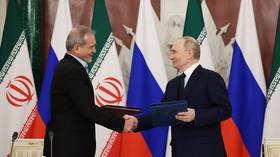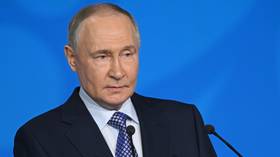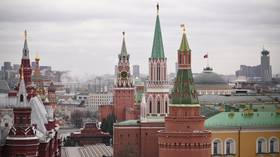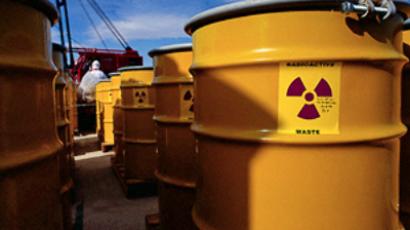Depleted uranium – valuable energy source or toxic threat?
Russia has been reprocessing other countries' depleted uranium since the 1990s, but now that the first contracts are ending, there is a growing number of voices calling for an end to the practice.
Some call it a high value energy source; others say it’s a ticking time bomb. The hexafluoride of Uranium is used to produce fuel for nuclear reactors, and once depleted can be reprocessed for further use – something which Russia has been doing for more than a decade by importing the material from abroad.
“What is depleted uranium? It's a secondary row material which can be involved once more in the nuclear fuel cycle. Depleted uranium is twice less radioactive than natural uranium ore,” Sergey Novikov, Russia’s atomic agency Rosatom spokesperson, said.
Depleted Uranium is not considered radioactive waste, the import of which was previously illegal in Russia. The decision to bring it in was taken in the 90s, reportedly with Britain, the Netherlands, Germany and France as the main customers. It was aimed at helping Russia's enrichment facilities survive during a deep economic crisis, but consequently sparked protests among environmental protection organizations.
Vladimir Chuprov heads the energy unit of Greenpeace Russia. Unlike Rosatom – a state corporation which imports, reprocesses and stores depleted uranium – he says it’s a big threat.
“It is radioactive, nuclear material but dangerous not only from the radioactive point of view but it's also very toxic stuff… if it goes into the open air it will start to convert into acid which harms the skin and kidneys,” Vladimir Chuprov, Head of Greenpeace Russia energy unit, said.
Rosatom's activities are supervised by a federal service to prevent any kind of accident and so far Rostechnadzor hasn’t reported any problems.
“It's important that the storage of this material is safe. So far we've been satisfied with the way it is being done. Russia is also currently working with France to develop a safer long-term way of storage,” Valery Bezzubtsev, Deputy Head of Rostekhnadzor nuclear department said.
The first contracts on the import of depleted uranium are set to expire at the end of 2009, but it’s still unclear how much of this toxic material has been imported over the years.














